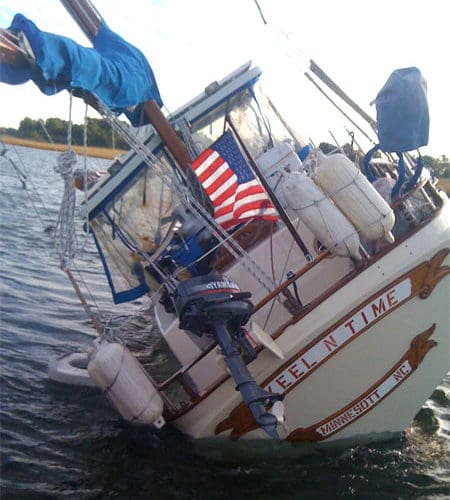Since marine insurance is not regulated like other types of insurance, prices can vary widely. Getting the best coverage for the best value takes a bit of homework. Let's take a look at 10 ways you can begin saving.
1. Before you start looking, know what you need. This may sound obvious, but knowing what coverage you want, where you will be sailing, and what deductibles you can live with will help. Most marine policies are custom written, knowing what you need and do not need will help the process and avoid paying for additional coverage you may not need or want.
2. If your boat is older than 10 years get a survey before you start shopping. Most insurance companies will want the survey anyway and having it up front will save time. The survey should be within the last 30 days and cover both in and out of water. Have a survey at your next maintenance haul out, then start shopping for insurance. Having a survey will also establish the value of your boat; this will ensure you get accurate quotes.
3. Shop around. It is surprising the difference in rates from one company to another for the same or similar coverage. Get quotes from at least three or four agents and compare the premiums and the coverage.
4. Do not do online quotes. It may seem easy to just fill out the form and get the quote, but in the long run you will not save. These forms and programs do not take all the factors into account that can save you money. They just spit out a quote based on simple information.
5. Get an agent that specializes in marine insurance. I used to think this was the most expensive way to go (after all the agent has to make his commission) but I have learned the opposite is true. A good marine agent can tailor a policy to your needs and make sure you are not paying for coverage and options you do not need.
6. Go back to school. Insurance companies take your boating experience into account. If you are new to boating, taking sailing and seamanship courses will reduce premiums. Experienced sailors would do well to get a license to prove that experience.
7. Keep a good driving record. You may not think that a speeding ticket would affect your boat insurance, but it does. Good credit scores help too. These are really the only way an insurance company can judge if you are a responsible person or not.
8. Upgrade your safety gear. Maybe I should rephrase that, upgrade the boat’s safety gear. Insurance companies are more interested in equipment to save the boat than life rafts and EPIRBs. I once had an agent tell me they would rather a boat not have a life raft because the owner and crew might be more inclined to abandon the boat if a raft and EPIRB were aboard. OK that might be a bit extreme, but insurance companies want to avoid losses and expect the owner to do their best to avoid losses as well. With this in mind, things like extra bilge pumps and high water alarms will not only help save your boat but will save you money on your insurance premiums as well.
9. Don’t pay for what you do not need. Just because you are planning a trip to the Bahamas in a few months does not mean your coverage has to cover the Bahamas year round. Consider a local cruising range policy and add a rider for the Bahamas only when you plan to be there.
10. Tweak your deductibles. Notice I did not say raise your deductibles, this could result in false economy. Too large a deductible and you get hit harder with small losses, on the other hand too small a deductible and you pay more in premiums. There is a balance point that normally is roughly 2 to 3 percent of the value. A good agent should be able to help you find what is best for you.

